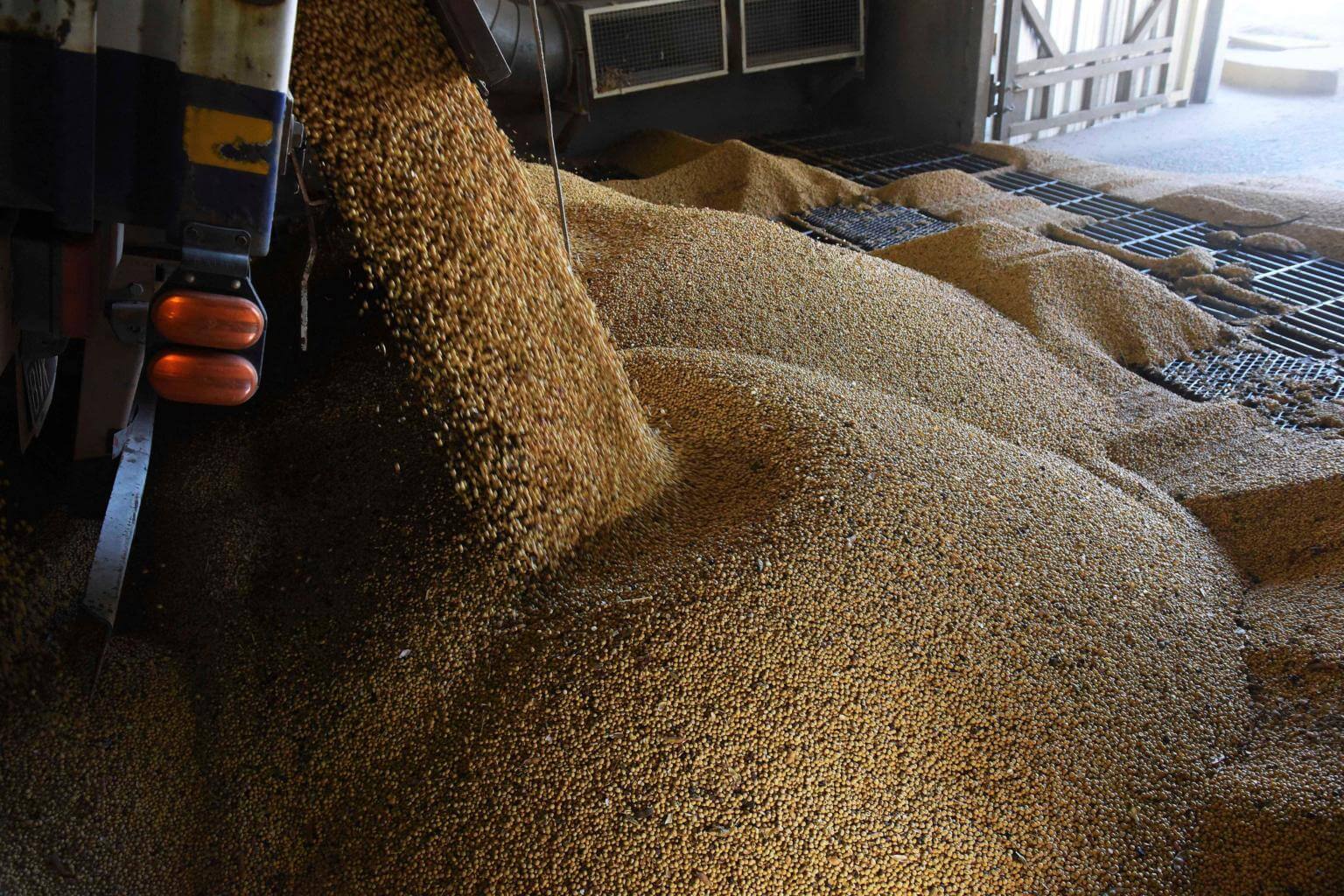China shunning US soybeans on trade tensions, says trader Bunge
Sign up now: Get insights on Asia's fast-moving developments

Countries such as Brazil and Canada are increasing soybean sales to China following Beijing's threat to impose a 25 per cent tariff on imports of US soybeans.
PHOTO: REUTERS
Follow topic:
NEW YORK (REUTERS) - US soybean sales to China ground to a halt after Beijing threatened tariffs on imports, the CEO of agricultural trader Bunge Ltd said on Wednesday (May 2), the latest sign of mounting trade tensions upsetting the global flow of commodities.
Countries such as Brazil and Canada are increasing soybean sales to China following Beijing's threat last month to impose a 25 percent tariff on imports of US soybeans, Chief Executive Soren Schroder said in an interview. US farmers rely on China as the top buyer of soybeans, but at a current price of about US$420 per tonne, that translates to a potential tax of more than $100 per ton on shipments.
"Nobody's willing to take the risk of committing to US soybeans to China in the current context, knowing that there could be a US$100 penalty from one day to the other, and no way of managing that risk," Schroder said after the company reported a quarterly loss.
Soybeans were the United States' most valuable agricultural export last year to China, which bought US$12 billion of the crop.
Freshly harvested South American soybeans typically dominate the world trade in the first half of the calendar year, followed by the United States from September onwards.
But US soybean sales to China over the last four weeks are down 10 per cent from this time a year ago, according to US trade figures - a blow to US farm country, which helped propel US President Donald Trump into office in the 2016 election.
Growing trade disputes are disrupting the agricultural supply chain worldwide and causing US farmers and manufacturers to back away from expansion plans due to steel and aluminum tariffs.
"The trade stuff has been another layer of uncertainty that nobody really knows how to price yet," Schroder said.
Separately, Beijing slapped hefty anti-dumping deposits on US imports of a livestock feed known as sorghum.
Bunge's rival, Archer Daniels Midland, said on Tuesday it would take a US$30-million hit in the second quarter due to the sorghum dispute.
ADM is closely monitoring US trade developments regarding China and the North American Free Trade Agreement, CEO Juan Luciano said.
Bunge has seen trade flows shift amid Nafta renegotiations as well. In one example, Bunge milled wheat that had been imported to Mexico from Argentina as a test, Schroder said.
Mexican buyers imported ten times more corn from Brazil last year due to concerns that Nafta renegotiations could disrupt their US supplies.
BUNGE SEES MARGIN IMPROVEMENT
The shift in China's soybean business is not a net negative for Bunge because it has operations globally, Schroder said.
"If there is a problem in one part of the world, we can solve it in another," he said.
Bunge reported a net loss of 20 cents per share in the quarter ended March 31, down from a profit of 31 cents a share a year ago. The loss included a $120 million charge due to forward oilseeds crushing contracts, which Bunge said it would recover.
Improved margins for soybean crushing should boost earnings significantly this year, executives said, after a severe drought reduced harvests in Argentina, the world's top exporter of soy products.
The higher margins prompted Bunge to raise its agribusiness unit's full-year earnings outlook to a range of US$800 million to US$1 billion fromUS$550 million to US$700 million.
Shares gained 2.3 per cent to US$73.29.
Bunge's projection for stronger performance was a turnaround after years of bumper harvests reduced price volatility and margins for the company and its rivals, making it tough to turn a profit on their core business: buying, processing and selling corn, soy and wheat.
A string of weak results over the past year left Bunge's management fending off takeover approaches from traders Glencore PLC and ADM.

